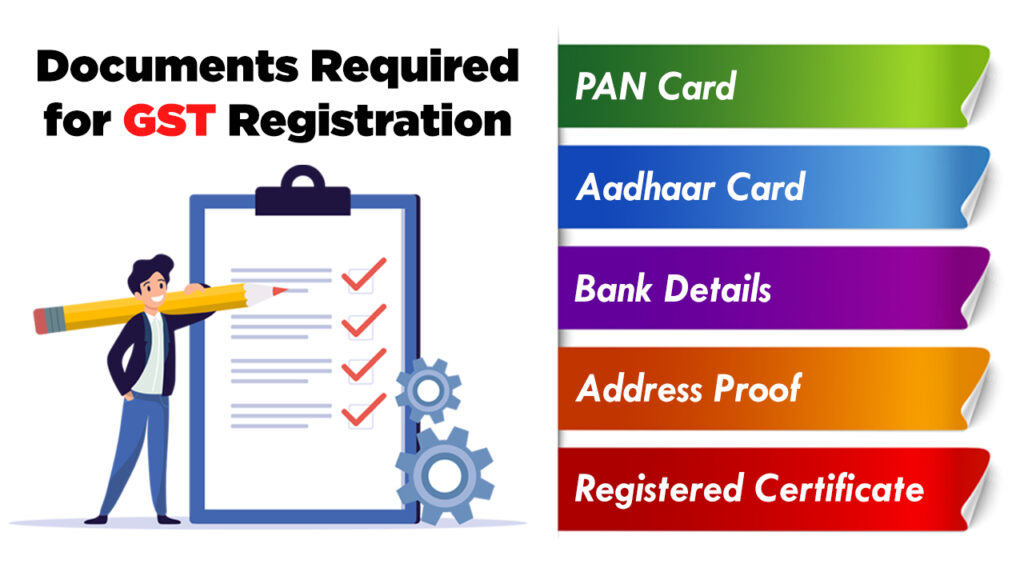Improving Your Singapore GST Registration: A Comprehensive Technique
Improving Your Singapore GST Registration: A Comprehensive Technique
Blog Article
The Ultimate Guide to Simplifying the GST Enrollment Process and Requirements for Small Organization Owners

Recognizing GST Essentials
To realize the principles of the Product and Provider Tax Obligation (GST) system, little company owners should first understand its underlying implications and principles. GST is a value-added tax obligation imposed on the majority of items and solutions for residential intake. It intends to enhance the tax process by replacing numerous indirect taxes imposed by the state and central governments. Under the GST regime, companies are called for to collect and register tax obligation in support of the government, ensuring openness and compliance.
One of the vital principles of GST is input tax credit, which permits companies to assert credit report for taxes paid on their purchases. This mechanism stops the cascading impact of tax obligations and promotes effectiveness in the tax system. Furthermore, GST is a destination-based tax obligation, suggesting that the tax is levied at the factor of intake as opposed to the factor of beginning. This guarantees reasonable distribution of tax obligation earnings among states based upon where the items or services are taken in. Understanding these fundamental concepts is important for local business proprietors to browse the complexities of the GST system and ensure compliance with the legislation.
Eligibility Requirements for Registration
Having actually developed a foundational understanding of GST principles, little company owners should currently meet specific qualification standards to continue with the enrollment process (Singapore GST Registration). Organizations that were signed up under the previous tax regimen (BARREL, solution tax obligation, and so on) are additionally mandated to sign up under GST. Agricultural services that only supply produce out of primary manufacturing are excluded from GST enrollment.
Documents Required for GST Registration

Simplified Enrollment Process Actions
Complying with the collection and verification of the requisite records, the enrollment process for GST can be you can look here navigated via a collection of streamlined steps created to help with effective conformity for local business owners. The primary step includes visiting the GST website and picking the 'New Enrollment' choice. Ultimately, the candidate must fill out Part A of the GST REG-01 kind with details such as frying pan, mobile number, and email address to get an OTP for confirmation. Once the OTP find out here is obtained and entered, a Temporary Referral Number (TRN) is produced for more procedures. The next action requires filling in Part B of the type with necessary service details, publishing supporting documents, and completing the confirmation process making use of DSC or EVC. Finally, upon effective verification, an Application Recommendation Number (ARN) is issued, showing the completion of the GST enrollment procedure. By adhering to these simplified steps, small company owners can properly register for GST and make certain compliance with tax guidelines.
Tips for Ensuring Compliance
To keep regulatory adherence and functional integrity, attentive oversight and proactive steps are essential in guaranteeing compliance with GST needs for tiny company proprietors. Little company owners need to remain upgraded with GST guidelines, submitting target dates, and any kind of adjustments in tax obligation prices to avoid charges and keep an excellent standing with tax obligation authorities. Attending GST recognition workshops or training programs can boost understanding and conformity with GST laws, inevitably profiting the organization in the lengthy run.
Final Thought
In conclusion, local business proprietors have to recognize the essentials of GST, satisfy the eligibility criteria, collect essential records, and adhere to the streamlined registration procedure actions to make sure compliance. By simplifying the GST enrollment procedure and needs, small business proprietors can prevent penalties and operate their businesses efficiently within the lawful framework - Singapore GST Registration. It is important for small company proprietors to stay informed and certified with GST laws to keep an effective service operation
Tiny company owners looking for GST registration have to ensure they collect and send the required documents read more to finish the registration procedure efficiently. The records required for GST enrollment normally include evidence of company enrollment or consolidation, FRYING PAN (Long-term Account Number) card of the organization entity, address and identity proof of the promoters/partners/directors, pictures, address proof of the location of business, bank account declarations or canceled cheques, and permission kinds. Going to GST recognition workshops or training programs can enhance understanding and compliance with GST laws, ultimately profiting the business in the lengthy run.
By streamlining the GST registration procedure and needs, small service proprietors can avoid charges and run their businesses efficiently within the lawful framework. It is important for little organization owners to stay certified and informed with GST policies to preserve an effective business operation.
Report this page